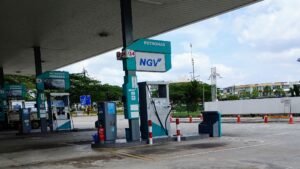Johor’s Data Centre Sector Flourishes
We expect to see a rise in solar farms and water desalination projects, which will ultimately create many job opportunities for the local .

KUALA LUMPUR: Samuel Tan, CEO of Olive Tree Property Consultants Sdn Bhd, recently reported that Johor is developing over 50 data centres in various stages, from application to operation. This growth aligns with the launch of the Forest City Special Financial Zone (SFZ), which is set to draw foreign direct investments (FDI) and complement the Johor-Singapore Special Economic Zone (JS-SEZ).
Despite a significant increase in data centres established across Malaysia last year, Tan noted that demand for new facilities in Johor remains strong among operators. He highlighted a growing trend of local developers collaborating with major data centre operators as anchors for their industrial developments.
While challenges around power and water resources persist, Tan remains optimistic. He foresees the development of data centres fostering innovations in renewable energy solutions and water management systems.
“We expect to see a rise in solar farms and water desalination projects, which will ultimately create many job opportunities for the local workforce,” he told NST Property.
The growth of data centres is anticipated to benefit several sectors, including electrical and electronics (E&E), semiconductors, and pharmaceuticals. Tan predicts a significant uptick in demand for housing, office space, retail establishments, and accommodations for workers.
Tan expects Johor’s industrial landscape to thrive through 2024, driven by robust investments in both data centres and the E&E sector. “We foresee more businesses, particularly those based in Singapore, establishing manufacturing units in Johor,” he commented.
He also emphasized the critical role of small and medium enterprises (SMEs) in the economy, stating, “SMEs are vital as they consistently provide job opportunities. It’s essential to support them through fiscal incentives and assistance for digitalisation and market expansion.”
Knight Frank Malaysia recently stated that the industrial property market is poised to remain resilient for the remainder of the year, driven by increased investments in data centres and the E&E sector. Their report projected a 3.5% growth in the manufacturing sector, supported by recovery in export-oriented industries and sustained domestic demand.
The E&E sector, which constitutes about 40% of Malaysia’s exports, is set for a resurgence driven by advancements in global technology, including digitalisation, IoT, 5G, and electric vehicles.
The Klang Valley region has demonstrated strong industrial market activity at the start of 2024, characterized by rising transaction volumes and values during the first quarter. Knight Frank has observed heightened interest from institutional investors seeking to invest in the industrial sector, reflecting a growing demand for manufacturing and logistics spaces.
The firm noted that industrial properties in prime locations continue to be highly sought after as investors aim to leverage stable returns. Rental rates for prime industrial spaces in Klang Valley are expected to remain strong throughout 2024, supported by the limited availability of both existing and new supply.
Moreover, the ongoing construction of high-specification logistics facilities, while associated with higher costs, is projected to contribute to rental growth in the medium term.








